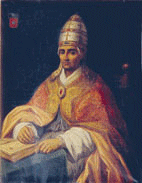1342
| Millennium: | 2nd millennium |
|---|---|
| Centuries: | |
| Decades: | |
| Years: |
| 1342 by topic |
|---|
| Leaders |
| Birth and death categories |
| Births – Deaths |
| Establishments and disestablishments categories |
| Establishments – Disestablishments |
| Art and literature |
| 1342 in poetry |
| Gregorian calendar | 1342 MCCCXLII |
| Ab urbe condita | 2095 |
| Armenian calendar | 791 ԹՎ ՉՂԱ |
| Assyrian calendar | 6092 |
| Balinese saka calendar | 1263–1264 |
| Bengali calendar | 748–749 |
| Berber calendar | 2292 |
| English Regnal year | 15 Edw. 3 – 16 Edw. 3 |
| Buddhist calendar | 1886 |
| Burmese calendar | 704 |
| Byzantine calendar | 6850–6851 |
| Chinese calendar | 辛巳年 (Metal Snake) 4039 or 3832 — to — 壬午年 (Water Horse) 4040 or 3833 |
| Coptic calendar | 1058–1059 |
| Discordian calendar | 2508 |
| Ethiopian calendar | 1334–1335 |
| Hebrew calendar | 5102–5103 |
| Hindu calendars | |
| - Vikram Samvat | 1398–1399 |
| - Shaka Samvat | 1263–1264 |
| - Kali Yuga | 4442–4443 |
| Holocene calendar | 11342 |
| Igbo calendar | 342–343 |
| Iranian calendar | 720–721 |
| Islamic calendar | 742–743 |
| Japanese calendar | Ryakuō 5 / Kōei 1 (康永元年) |
| Javanese calendar | 1254–1255 |
| Julian calendar | 1342 MCCCXLII |
| Korean calendar | 3675 |
| Minguo calendar | 570 before ROC 民前570年 |
| Nanakshahi calendar | −126 |
| Thai solar calendar | 1884–1885 |
| Tibetan calendar | 阴金蛇年 (female Iron-Snake) 1468 or 1087 or 315 — to — 阳水马年 (male Water-Horse) 1469 or 1088 or 316 |
Year 1342 (MCCCXLII) was a common year starting on Tuesday and current year of the Julian calendar.

Events
January–December
- January 21–June 27 – An-Nasir Ahmad, Sultan of Egypt, rules prior to being deposed by his half-brother As-Salih Ismail.
- May 7 – Pope Clement VI succeeds Pope Benedict XII, as the 198th Pope.
- July 16 – Louis I becomes king of Hungary.
- July 18 – Battle of Zava: Mu'izz al-Din Husayn defeats the Sarbadars.
- July 22 – St. Mary Magdalene's flood is the worst such event on record for central Europe.[1]
- August 15 – Louis "the Child", age 4, succeeds his father, Peter II, king of Sicily and duke of Athens; he is crowned on September 15 in Palermo Cathedral.
- September 4 – John III of Trebizond (John III Comnenus) becomes emperor of Trebizond.
Date unknown
- Guy de Lusignan becomes Constantine II, King of Armenia (Gosdantin, Կոստանդին Բ).
- The Greek Orthodox patriarch of Antioch is transferred to Damascus, under Ignatius II.
- Kitzbühel becomes part of Tyrol.
- Byzantine civil war of 1341–1347 – The Zealots seize power in Thessalonica, expelling its aristocrats and declaring themselves in favour of the regency.
Births
- January 17 – Philip II, Duke of Burgundy (d. 1404)
- April 6 – Infanta Maria, Marchioness of Tortosa (d. after 1363)
- November 8 – Julian of Norwich, English mystic (approximate date; d. 1413)
- date unknown
- Levon V Lusignan of Armenia (d. 1393)
- Avignon Pope Clement VII (d. 1394)[2]
- Humphrey de Bohun, 7th Earl of Hereford (d. 1373)
- John Trevisa, English translator (d. 1402)
Deaths
- March 31 – Dionigi di Borgo San Sepolcro, Italian Augustinian friar
- April 25 – Pope Benedict XII[3]
- July 16 – King Charles I of Hungary
- September 4 – Anna Anachoutlou, Empress of Trebizond
- November 29 – Michael of Cesena, Italian Franciscan leader (b. 1270)
- date unknown
- Al-Jaldaki, Persian physician and alchemist
- Peter Paludanus, French bishop and theologian (b. c. 1275)
- William de Ros, 3rd Baron de Ros
- probable – Marsilius of Padua, Italian scholar (b. 1270)
References
- ^ Das verflixte "Genua-Tief", Neue Zürcher Zeitung, August 25, 2008, archived from the original on December 30, 2011, retrieved February 12, 2016
- ^ "Clement (VII) | antipope". Encyclopedia Britannica. Retrieved March 18, 2019.
- ^ "Benedict XII | Biography, Legacy, & Facts". Encyclopedia Britannica. Retrieved March 14, 2019.
